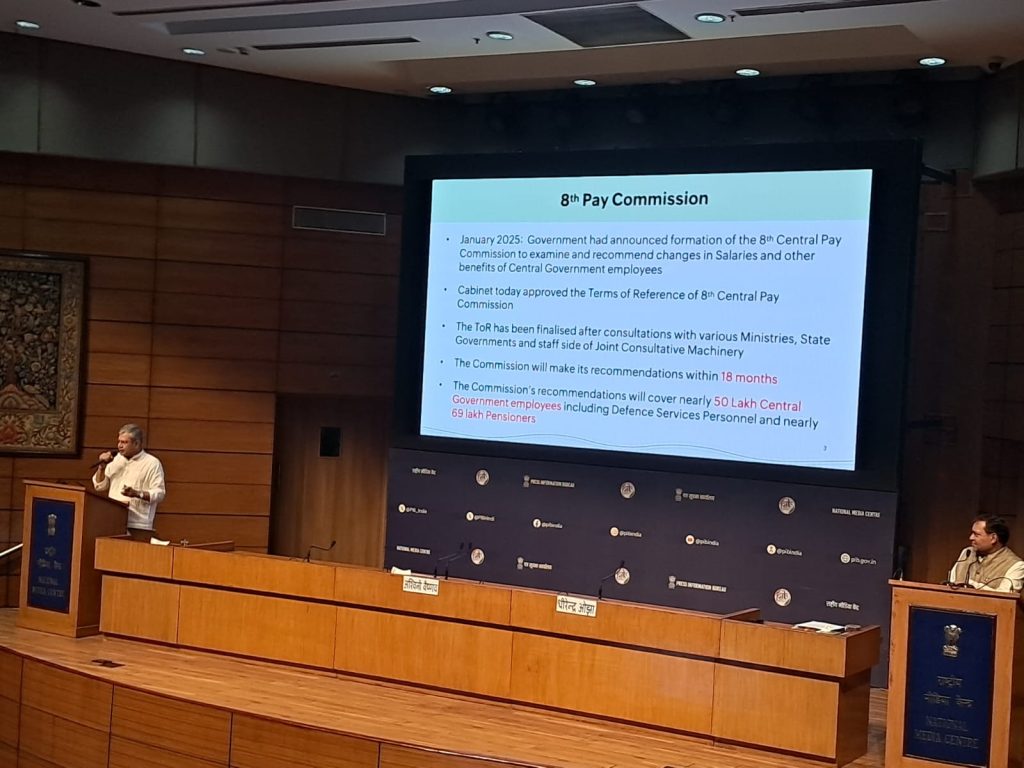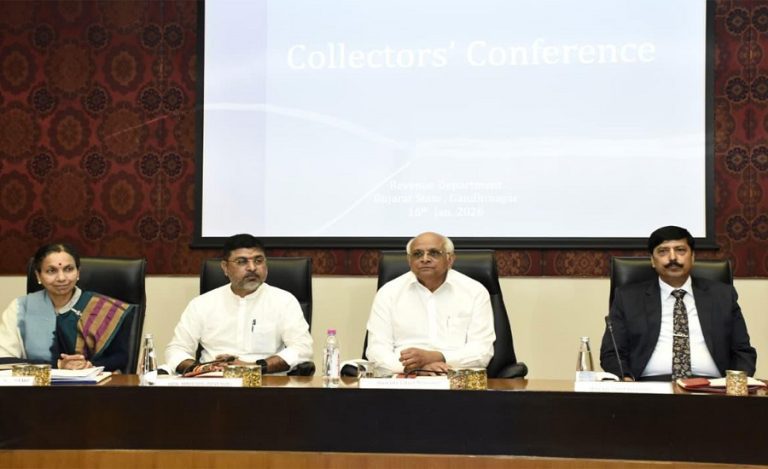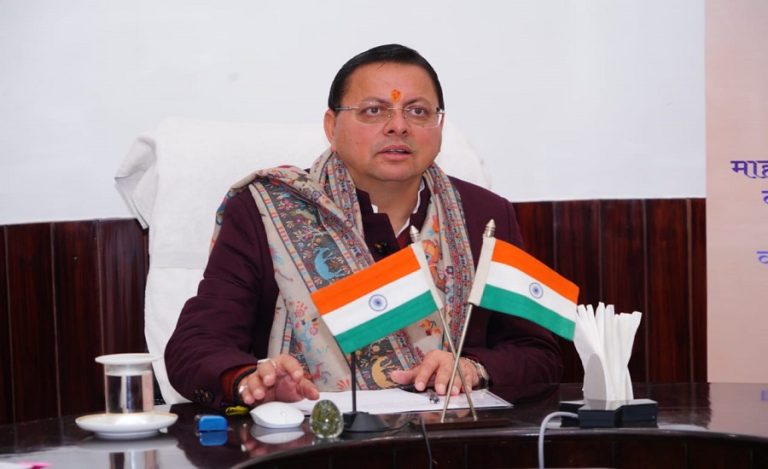New Delhi: In a major decision impacting millions of central government employees and pensioners, the Union Cabinet, chaired by Prime Minister Narendra Modi, has approved the Terms of Reference (ToR) for the 8th Central Pay Commission (CPC).
The move sets the stage for a comprehensive review of pay structures, allowances, and pension benefits for nearly 50 lakh central government employees — including defence personnel — and around 69 lakh pensioners across India.
Justice Ranjana Prakash Desai to Lead the Commission
The 8th CPC will function as a temporary body comprising a Chairperson, one Part-Time Member, and one Member-Secretary.
Justice Ranjana Prakash Desai, former Judge of the Supreme Court of India, has been appointed as the Chairperson of the Commission.
According to the Cabinet’s decision, the Commission will submit its report within 18 months of its constitution and may, if required, present interim reports on specific issues.

Commission to Recommend Balanced Pay Revision
Announcing the Cabinet’s decision, Union Minister Ashwini Vaishnaw said:
“The composition, terms of reference, and time frame of the 8th Central Pay Commission have been approved by the Prime Minister. This is a very important decision as the Commission’s recommendations will cover nearly 50 lakh central government employees, including Defence Services personnel, and around 69 lakh pensioners.”
The Commission’s recommendations will guide the government in revising salary structures, allowances, and pension formulas, while balancing fiscal responsibility and employee welfare.
Key Factors for Consideration
While framing its recommendations, the 8th CPC will consider the following key aspects:
- Overall economic conditions and the need to maintain fiscal prudence.
- Availability of resources for development and welfare expenditure.
- Unfunded costs arising from non-contributory pension schemes.
The impact on State Government finances, as many states adopt CPC recommendations with modifications.
Comparative pay structures and working conditions in Central Public Sector Undertakings (CPSUs) and the private sector.
Recommendations Likely Effective from January 1, 2026
The 8th Central Pay Commission’s recommendations are expected to take effect from January 1, 2026, following the historical pattern of previous Pay Commissions, which are typically implemented every ten years.
The formation of the 8th CPC was first announced in January 2025, with the government emphasizing a balanced approach to ensure both fiscal sustainability and the well-being of public servants.




























